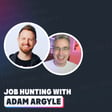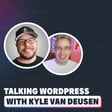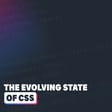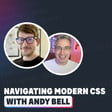Become a Creator today!Start creating today - Share your story with the world!
Start for free
00:00:00
00:00:01

Are we entering the Post-developer era?
Josh’s article: https://www.joshwcomeau.com/blog/the-post-developer-era/
In this episode of General Musings, I’m reading Josh Comeau's most recent article “The Post-Developer Era” and sharing my thoughts on what Josh writes.
I discuss whether AI tools are making human developers redundant or simply serving as valuable aids. From adoption rates at companies like Google to the nuanced effectiveness of AI tools like Devin and more. Josh also talks about job hunting tips for aspiring developers in today's challenging market that I thought were pretty insightful.
Transcript
Introduction to AI and Front-End Development
00:00:00
Speaker
Hello, my friend and friends, and welcome to my podcast, General Musings. My name is Kevin, and here my podcast, I talk about whatever is front of mind in any given week, usually in some way that is related to front end development, which that to this week's is definitely going to be on topic after a little bit of a divergence last week.
Discussion on AI's Impact on Development
00:00:15
Speaker
And yeah, we're going to be talking about artificial intelligence and the impact of artificial intelligence on front end development and i guess development in general. The reason this is front of mind for me this week is because Josh Comwood recently put out an article taking a look at exactly this.
00:00:30
Speaker
And the last time he did this, he basically echoed exactly what I thought about the whole situation, which is about two years ago. And he's a better writer and a little bit more eloquent in general.
00:00:41
Speaker
And he's a little bit more eloquent than i am. So I figured we'll take a look at his post this time. See what I agree with it, what I don't. um If there is anything I do or don't agree with, I guess. And yeah, I'm going to sort of read through his post here and share my opinions on on what he's saying. And I was actually recommended to do this based on when I did the spec last time of when interesting things like this come up to take a little bit more of a structured look at it. So if you do like this type of analysis or dive into or whatever it is, ah do let me know so we can do more of them in the future. And of course, the this article is linked down in the description as well. We're not going to potentially read every single line.
Predictions and Realities of AI in Software Development
00:01:19
Speaker
I don't know. I've never done this before. And ah so yeah, let's see how it goes. We're going to start by
00:01:25
Speaker
Right here, Josh saying two years ago in March of 2023, I published a blog post called the end of front end development. This was right after OpenAI i released its GPT-4 showcase. And the general reaction was that human software developers were about to be made redundant, that software would soon be written exclusively by machines.
00:01:43
Speaker
It's kind of interesting how that was two years ago that he published that and Not much has changed. I don't know. um I'm assuming he's going to talk about that.
00:01:53
Speaker
I was skeptical of these claims. And in that blog post, I made the case for why I thought software development would still be would still require humans for the foreseeable future. And his hypothesis was that LLMs would augment human developers, not replace them.
00:02:08
Speaker
And yeah, i remember reading that post and agreeing ah basically with everything he said in it. It echoed exactly what I had been thinking at the time. At that time, the conventional wisdom on Twitter was that it would only be a few months before AI extinguished all demand for human front end developers, maybe a year or two at most.
00:02:27
Speaker
Well, it's been over two years since then.
AI's Role in Code Generation
00:02:30
Speaker
So were they right? Are we currently living in the post developer era? And this post is where he's going to to talk about it. So first section here, companies and AI usage.
00:02:41
Speaker
Over the past few years, companies have definitely been adopting AI tools more and more. For example, Forbes recently published an article titled AI writes over 25% code at Google. code at google That's a lot.
00:02:53
Speaker
um I haven't read that one. The article's title makes it sound like AI is doing 25% of the work and the human developers are doing the other 75%. But that's not actually what's going on here. The title is misleading, in my opinion.
00:03:05
Speaker
I mean, that's not surprising that the title is misleading because they want people to click on it, right? So they're going to make it as sensational as possible. AI may be generating 25% of the code that gets committed at Google, but it's not acting independently. A skilled human developer is in the driver's seat using their knowledge and experience to guide the AI, editing and shaping its output and mixing it in with the code they've written.
00:03:29
Speaker
As far as I know, 100% of the code at Google is still being created by developers. AI is just one of the many tools they use to do their jobs. Yeah, that's a very valid point, right? Nobody's just setting things on autopilot and and letting them do everything. It's just 25% of it is generated by AI. Like I'm sure a lot of people listening to this use AI to help generate some of the code that they have in in what they're doing.
Limitations of AI Tools in Development
00:03:53
Speaker
ah So he continues, in other words, it's not like the product team at Google have fired 25% of the developers and replaced them with pseudo sentient AI robots who work autonomously and report directly to the project project product manager.
00:04:06
Speaker
I haven't heard of that happening at any large scale tech companies. Now, there are startups who claim that their AIs can fully replace human developers. was a dimension Devon, but he goes ahead and does that here. So ah the most popular of these is Devon, a product created by Cognition and released a year ago in March of 2024.
00:04:25
Speaker
a little before if you don't remember when Devon came out like the hype around it was so not the hype from people the hype from the company was a in my opinion so over the top and the way I saw it was like the demos they were putting out for it were such marketing like purely marketing because it was like here's this ai tool they can do the job of a ade developer so they're showing it but it's like opening the windows and it was doing multitasking which was cool because it's trying to show that it can use this and then go and search for something and then do this other thing. But like the fact that it was like opening the windows and typing in things into Google to search for them and stuff. I'm like, this isnt if you had an effective AI tool, it probably wouldn't be working in that way. You know, it's going to be doing that Google search behind the scenes. Like it was just like as soon as it was doing that, I'm like, I get that these companies are trying to raise capital. Like that's the main thing they're trying to do and hopefully get bought out, I'm assuming.
00:05:19
Speaker
ah But I just found it so transparent that it was pure marketing and nothing else um that it didn't worry me too much, to be honest. All right. So Josh continues.
00:05:30
Speaker
But when companies actually try to use it, they run into problems. For example, one team found that Devin could only complete three out of the 20 assigned tasks, and it was ultimately more trouble than it was worth. They gave up after a month.
00:05:41
Speaker
I'm also really curious what the price of that was, because i heard that it was extremely expensive to run it, um or I guess is expensive to run it. like I'm assuming it's still around. I haven't really heard much about him ah since that initial marketing push.
00:05:58
Speaker
So here's some of what their team had to say about it. And another person that are so small and wellde defined that i might i may as well do them myself faster my way larger tasks where i might see the time savings i think it will likely fail at so no real niche where i'll want to use it and another person said I had initial excitement at how close it was because I felt I could tweak a few things and then slowly got frustrated as I had to change more and more to end up at the point where I would have been better off starting from scratch and going step by step.
00:06:33
Speaker
That sounds like every AI tool that's out there.
00:06:37
Speaker
Right? Like that's just I think most people's experience with it. So even the fancy ones, it's the same the same thing. ah Josh continues, these quotes aren't from a skeptics. They're from a technical team who work for an ai startup, trying the product with enthusiasm and in good faith.
00:06:53
Speaker
And their experience isn't unusual. I've read that a handful of other real world world reports and they all arrive at the
Human Guidance in AI-Assisted Development
00:07:00
Speaker
same conclusion. This just this just doesn't work that well.
00:07:04
Speaker
As far as I can tell, every AI success story has skilled human developers as a necessary ingredient. So I think it's safe to say that we're not living in the post developer era. Yeah, this made me there was I wish I I don't know if I re reboost. What do you call it on blue sky when you repost repost? That's probably it.
00:07:23
Speaker
I don't know if I did it or not, but it makes me think I want to find the initial joke because it was a little comic thing, I think. I might have. I don't remember. It doesn't really matter. It was something like it's amazing how AI gets everything right except for the things that I'm an expert in. And then it's always wrong, which is basically my experience of it as well. Where like once you know better, um you realize the problems that are there and you need That's why like ah my biggest issue with it is always that as a learning tool is that it's a little bit problematic in a way, because if you don't have the knowledge to know when it's wrong and to correct it, then you just don't know. And the way it does things and writes things and explains things, it always sounds so confident that it's correct.
00:08:09
Speaker
And even I've had some experience lately where I've questioned something and it doubled down and then I found the source to you know correct it and would ask and it's oh yeah, sorry, you're right.
00:08:21
Speaker
And like, you know, when it's doubling down and before it's admitting it's wrong ah when it's it's not like it's I don't remember what what it was. um But yeah, we have to be so careful. And if you're not an expert in something, it's hard to be careful and to actually know.
00:08:36
Speaker
ah So the next section here is drifting off road in Josh's post. And he says, over the past couple of years, I've experimented with a lot of AI tooling myself. A few months back, I switched over to Cursor, an AI powered IDE. I've been using it for a I've been using its agent mode with Claude Sonnet, and I have to admit it's pretty remarkable.
00:08:56
Speaker
For certain kinds of tasks, I can give it some context and point it in the right direction, and it whips up a working solution on the first try. It's smart enough to catch an often fixed TypeScript or lint errors. And there have been a few times where i am I've learned something new, where the suggested solution was better than what I had planned to write, thanks to some cool API I wasn't aware of.
00:09:16
Speaker
But it's not perfect. It does require guidance. It feels a bit like driving on the highway with cruise control. The car mostly goes where you point it, but you still need a hand on the steering wheel, keeping it steady. Otherwise, the car will slowly start to drift off its lane.
00:09:30
Speaker
If you don't occasionally nudge it back on track, you'll wind up in the ditch. That's that analogy makes sense um to me. Yeah. OK, we'll keep going here before I say anything else.
00:09:43
Speaker
And that's kind of a problem for the no more developers theory. If I didn't know how to code, I wouldn't notice the subtle yet critical issues with the model's output. I wouldn't know how to course correct or even realize that course correction was required. Yeah, exactly. OK, so yeah, exactly what I was thinking and sort of said a little bit earlier.
00:10:05
Speaker
So he continues, I've heard from no coders who have built projects using LLMs and their experience is similar. They start off strong, but eventually reach a point where they can't progress anymore, no matter how much they coax the ai The code is a bewildering mess of non-secretors and beyond a certain point, no amount of duct tape can keep it together. It collapses under its own weight.
00:10:26
Speaker
Also, there are a lot of tasks that LLMs aren't very good at. ah haven't seen any mentions of CSS here, but I think I would add that as one of them.
00:10:36
Speaker
OK, but there have been times where I've spent a frustrating 10 minutes trying to get Claude to understand what I want before giving up and taking five minutes to build it myself. I started I've started developing an intuition for which tasks should be delegated to the AI and which should be tackled the old fashioned way.
00:10:55
Speaker
And he continues just saying that he writes most of the code himself. um But are yeah so yeah, there have been cases where and the LLM does 30 minutes of work for me in 30 seconds, and those cases are exhilarating. Those are always the ones where it feels like, okay, this I can do so much more with it.
00:11:13
Speaker
And a big part of it is learning what those types of tasks are like for me, like some of the automation it can do, or if you just give it like a couple of lines that you wanted to like extrapolate into something a lot bigger or do like quick corrections for naming things and like it's so good at that um and so fast, but you still need to double check and make sure it did what you asked it to.
00:11:34
Speaker
It's like tag team wrestling. right Sorry, I lost myself there. And then he says, it's like a tag team wrestling match. When I hit a task that Claude would excel at, I tap out and let him tackle it. But I'm still the one writing the code most of the time since it's faster, easier to do it myself.
00:11:50
Speaker
I find that really interesting that he used the it's funny like how we personalize things, right? Because he says I tap out and let him tackle it. It is clode. You know, ah ah just it tackle it. I don't know.
Job Market Conditions and AI's Influence
00:12:02
Speaker
And I find myself doing this as well, like personalize these things that are just large language models. I find it really interesting. I don't know why we do that.
00:12:10
Speaker
The current job market. Oh, this is interesting. um Before I read what he says here, quick thoughts from myself. It's hard now. ah think mostly because like, I don't know how much of it is just the AI thing. I think it's not in combination of everything else that's going on. um But yeah, let's see what he says.
00:12:34
Speaker
When I wrote this post a couple of years back, it was a pretty tough time in the job market. Actually, we're here. Sorry, I'll continue this. Unfortunately, things are still pretty tough out there. This is one thing that surprises me is like two years ago when the market was really tough.
00:12:50
Speaker
I assumed that by now it would have corrected itself and we'd be sort of back and every now and then it sort of kept feeling like we were going to be moving back toward a hiring cycle again. and then it just keeps sputtering out and not happening. Maybe, uh, fingers crossed.
00:13:07
Speaker
and Um, yeah, that, that it improves, but, ah Josh continues, if you're a job seeker, you know that there aren't many high quality job listings as there used to be, and the good ones get swapped with applications. It's very hard to get an interview, let alone an offer.
00:13:22
Speaker
But I don't think this is because companies are actually replacing their developers with autonomous AI agents. As I've shared, the real world experiences I've read just don't support that hypothesis. So what gives, why is there still, why is it still so brutal out there?
00:13:37
Speaker
And he has a few, so yeah, he thinks there's a few factors. Number one, macroeconomic stuff, interest rates are relatively high, making it harder for startups to attract funding. They need to grow and hire developers. For several years now, the general economic sentiment sentiment has been that we're on the cusp of a recession, which um doesn't look like it's about to get better.
00:13:56
Speaker
um you know it doesn't We've been on the cusp for a while, And I kept assuming it was we were sort of about to get out of that. And now it looks like we might be diving in, which sucks. But yeah, that won't help matters.
00:14:12
Speaker
Layoffs. big time Big tech companies laid off hundreds of thousands of workers over the past couple of years for a variety of reasons. This means there are tens of high holly ha sorry there are tons of highly qualified devs out there looking for work.
00:14:26
Speaker
I think that's a big one. And I do people will be like, well, if it's not replacing with AI, why is there so many layoffs? ah As Josh says, there there are multiple reasons for it. There was a lot of overhiring that did happen at one point.
00:14:40
Speaker
ah COVID was kind of like a crazy time and there was way too much growth of and just pouring money into things. And so I think a large part of it was was and it maybe continues to be at least at the beginning, like through a lot of these layoffs, I think it's been ah a correct course correction from the companies that either they overhired or they, you know, company, public companies especially are really good at projecting the current situation to go on forever.
00:15:13
Speaker
And if you're hiring more and more, it's good because it looks like your company is following that trend. But then, of course, eventually the bottom falls out because profits never exponentially rise forever.
00:15:24
Speaker
And it's just when all of that happens at once, it hits the entire industry at one time. And last year, at point number three that Josh makes is AI myths. Some companies are still operating under the belief that AI really will make developers obsolete soon.
00:15:39
Speaker
And so they're not hiring as aggressively as they otherwise would. Yeah, definitely. i think there's a holding pattern um within some teams that are going on, ah maybe even quite a few just waiting for things to shake out. But it does seem like at one point you got to realize like, OK, maybe this isn't where things are going.
00:15:56
Speaker
Uh, that last point is particularly frustrating. Companies are not hiring the developers they need because they're convinced that AGI is right around the corner. And when the a catches, we won't need human developers at all anymore. It'd be of any week now they've been saying it for years.
Economic and Political Influences on Tech Jobs
00:16:10
Speaker
Uh, I'll say one thing, if it ends up being AGI, then we have a lot more than development jobs that we have to worry about.
00:16:17
Speaker
If you're watching this on the YouTube version, I love it near the bottom of Josh's articles. He has a little 3D version of himself that pops out to ask if you want to sign up for his newsletter, which is very cute. um All right.
00:16:28
Speaker
Looking forward. When I wrote the end of front end development back in 2023, I was trying to reach aspiring developers, folks who are in the process of learning to code right at the start of their career. I saw how bleak everyone's predictions were and wanted to provide a counterweight to all the FUD I saw online, FUD meaning fear, uncertainty and doubt.
00:16:47
Speaker
ah And for everything that has changed over the past two years, things have stayed the same. One, companies still need human developers to build their products. And two, AI evangelists are still claiming that any day now, companies won't need human developers to build their products.
00:17:01
Speaker
If you're an aspiring developer in college or bootcamp or studying on your own, I still fully believe there will be opportunities for you when you're ready to enter the workforce. It seems clear to me that we're still a long way from software development becoming fully automated. And once companies realize the AI works much better as a developer enhancer than as a developer replacement, I think they'll stop sabotaging their own growth and start hiring at a more vigorous pace.
00:17:26
Speaker
There's no doubt that a models will continue to improve. It seems like every week a new model gets released that breaks records on one benchmark or another. Most recently, it was Google's turn when they announced Gemini 2.0 flash and 2.5 Pro models. And he has the graphs for them that we don't need to worry about. And then he says,
00:17:44
Speaker
It seems to me like we've reached the point in the technology curve where progress starts becoming more incremental. It's been a while since anything truly game changing has come out. Each new model is a little bit better, but it's more about improving the things it already does well rather than conquering all new problems. And actually, that is something I've been saying, I think from when you did that original post is like the the all from this.
00:18:10
Speaker
Well, every time you have these improvements, the next one is harder to make and is going to be smaller. And it's just there's always the diminishing returns on these things. Right. And once again, it's sort of like companies projecting their profits are going to exponentially increase forever, which is never actually true.
00:18:29
Speaker
The same for the development of things is they'll plot out. This is, you know, we have this nice linear graph or even an exponential graph of progress, but eventually that exponential graph flips upside down and things get exponentially more difficult to actually ah increase, you know, it's all the low hanging fruit at the beginning. And so things definitely start slowing down over time with these improvements that do happen. So Josh continues in a concern section here. In 2023, I was reasonably confident that AI wasn't on the cusp of taking our software jobs.
00:19:01
Speaker
Two years in, and I've only become more confident in that belief, knowing how to code is still an incredibly valuable skill. And I don't see that changing anytime soon. That said, I'm also not trying to say that everything is great and we'll all just be fine.
00:19:13
Speaker
Last year, Americans inexplicably reelected a wildly incompetent con man to be president. We're getting political now.
00:19:22
Speaker
We're only a couple of months in and Trump has already torched the world economy, gutted the federal government and made it an unsafe place to visit for non-citizens and started a global trade war. It's hard to anticipate what effect this will have on the tech industry, but it so certainly won't be good.
00:19:36
Speaker
um Yeah, I think that um it's going to be interesting at the very least. If we need a word for it, I think that's the word. And I think that, I mean, speaking before about the potential of recession, none of this is helping it, right?
Learning and Development with AI
00:19:51
Speaker
So um yeah, we'll see where where things go on that front. But I definitely, again, that's not just developers that have to worry. This has potential for like the economy as a whole and just everything as a whole really really. Right. And that affects the tech industry potentially in big ways. And it all depends on where the tariffs go and if they actually stay in place or if he decides to not do them for something, whatever, you know how it goes. It's I'm in Canada now and we went through like or I'm saying I'm in Canada now. I've always been in Canada, but we had like the three of times, I think, where it was there's tariffs and then they'd last less than a day and then they were gone.
00:20:31
Speaker
um I think that's the uncertainty of where everything's going with all of that and with what um Trump is doing is just wild to me. And I don't know what the game plan, if there is one, actually is, like what the purpose of any of it is at this point, because it seems just confusing, nothing else.
00:20:55
Speaker
But yeah, let's continue here. I also worry a bit about the next generation of developers. When using LLM agents, it's so easy to get lulled into a trance and keep hitting accept changes without understanding or even looking at the code being generated.
00:21:07
Speaker
ah little note here saying vibe coding, since it's known by the cool kids. I caught myself starting to fall into this trap when I was building the landing page for my new course. I took my hand off the steering wheel for too long and had to spend a bunch of time refactoring funky junk code as a result.
00:21:22
Speaker
I also worry there for a little bit of what I was saying is people are going to use it as a learning tool and not or just assume that it's doing more without realizing that it is potentially creating junk code like um and yeah, there's when you feel like you don't need to deep dive into a topic and you're like, oh, I can get this thing to do that for me.
00:21:46
Speaker
It can get a little bit dangerous. And that I think is a concern. ah He continues, the path of least resistance is to sit back and let the machine do its thing, but this prevents us from building the skills we need to debug and fix the code when the machine invariably gets stuck.
00:22:00
Speaker
There we go. where guess I guess me and Josh definitely agree. um On the other hand, if you use LLMs proactively, there's never been a better time to learn how to code. When I get stuck with a TypeScript error I don't understand, AI can often help me understand it or at least surface the relevant keywords I need in order to find the right docs.
00:22:16
Speaker
It's like when we have access to our own personal tutor who can help us make the sense of things we don't understand. And then he has a note there saying, although that tutor is occasionally on LSD, so we do have to be a little wary of their suggestions. So I'm glad you put that note there because that was my main thing that I was going to say is how you just have to be very vigilant in how you use it as a tutor, I
Future of AI in Software Development
00:22:40
Speaker
think.
00:22:40
Speaker
um to help you out. And I think it can it definitely can be a learning tool. It's just one that you have to be very careful with.
00:22:49
Speaker
um So nobody knows how the next few years will play out, but I wouldn't be surprised, but it wouldn't surprise me at all if we see a bit of a developer renaissance in a year or two when companies have finally accepted that human developers are still required when they realize that a human skilled arm that a skilled human armed with a powerful LLM can do incredible things.
00:23:08
Speaker
If you're passionate about software development or if you see it as the best opportunity for you to earn a high salary that will lift you into the upper middle class, I really hope you won't let yourself get discouraged by the AI hype. Companies are still hiring and I don't see that stopping anytime soon.
00:23:22
Speaker
Yeah, it's a nice way to end things off. Uh, though he does have another section here, job hunting tips. Uh, we'll move into that in a second. I do want to just, I guess, finish on the AI thing, uh, that it's, yeah, again, I think Josh did a really good job with this article and basically it was obvious as we're going through it. I think that i agree with most of what he's saying here, if not everything, um, that there's, you know, still reason to,
00:23:49
Speaker
see where things go. But I do think that it's a the amount of hype that's going around it. um And there's still like this complete there's two other things I think factor into one of them. They're still highly subsidized, right? The companies, you know, Google behind it, but even the ones that you it's not they say open AI or something like that, like they keep getting rounds of funding and these are all very expensive to build and they're also expensive to run.
00:24:17
Speaker
ah Obviously there's been a few models now that have changed a little bit of the approach to things to help on that front. And it's also better because they have a lower environmental impact as well um and lower cost of running them. So like there is that balance defined between those things. But like it's kind of crappy. A lot of that isn't it doesn't seem to be talked about enough or or maybe it's just ignored when I don't think it should be.
00:24:44
Speaker
um So yeah, but anyway, I do agree with a lot of what Josh is saying that at one point there there will be a realization that you still need a skilled developer to use these the same way that in and in this would be in any field. It won't just be with the development. AI is going to be impacting lots of different fields.
00:25:03
Speaker
It already has had massive impacts on some of them. And I think on some fields, it's going to be a lot worse than what it is for development because it's able to get close enough or how's this, it's in the fields where close enough is okay that it will have a bigger impact. Whereas with coding close enough, all of a sudden opens up lots of potential problems from like fragile code bases that can just fall apart to major security issues, which I've already heard of companies that push code that have security issues because they just let the LLM do its thing.
00:25:34
Speaker
Yeah. and I think in industries like ours, where you need to have a certain level of precision, and i that it's, there's always going to be someone who's driving the train and having to you know keep an eye on where things are going and using these tools as a tool rather than letting them do the job, uh, for them.
Career Strategies in the AI Era
00:25:51
Speaker
yeah Let's get into these job hunting tips. ah Let's talk about how to maximize our chances of success in the current job market. The first thing to realize is that AI has made the hiring process miserable for companies.
00:26:02
Speaker
Job postings will sometimes get thousands of AI generated slop applications, and it's hard for them to sift through all of the junk. If you apply for an open role, it's very possible that gets buried under a mountain of garbage. Yeah, I've heard a lot about that.
00:26:15
Speaker
So I think there's two solutions to this. First, try to apply very early within the first couple of days that the job is posted and second, lean on your network. I do think that second one is really, really, really important.
00:26:26
Speaker
ah Though obviously if you're new, you don't have a network, but yeah, there you go. If you're new, you don't have a network. That's what Josh says. ah But you can start building one today. There are so many different ways to do this. The most obvious is to look for local meetups in your area, which can be a great option to meet developers who work for companies you might want to work for. They can help you they can help make sure your application doesn't get lost in the pile.
00:26:48
Speaker
But honestly, if you're as introverted as I am, this may not be the best option for you. When I tried going to local meetups at the start of my career, I was too shy to approach strangers, so I never met anyone and and it never did me any good.
00:27:00
Speaker
um Yeah, that's a really good point, obviously. I would encourage people to go to meetups or conferences or whatever it is. ah there's I've met a lot of people that were early on and their careers. They hadn't had jobs yet. They were still studying and they were going and making these connections and and becoming friends with people working at big companies like Microsoft and Google and other things like that. And then they wouldn't necessarily need a job there right away, but those people have networks. And when they hear that there's a job,
00:27:30
Speaker
that's coming, and that, you know, that could get filtered down to this other person. And I think, I think it's always been this way. It doesn't matter how good or bad the, the, the whole thing is, you're always going to have more chances if you do have a network. um But as an introvert myself, I definitely understand what Dasha is saying there, ah that it can be very hard to make those connections um or or just not even make connections, but go up and talk to people. So, Yeah.
00:27:59
Speaker
Fortunately, there are other options. So Josh continues, I built my network by building cool stuff and sharing it online. You can contribute to open source projects or get to know people in Discord communities. You'll have the most success if you lean into your strengths as I share my blog post becoming a software developer without a a computer science degree.
00:28:17
Speaker
Also, your community can help you discover opportunities. Frustratingly, there are lots of job postings for made up companies that exist purely as data harvesting operations. Instead, you can browse through your contacts on LinkedIn and see where they work and build a list of definitely real companies to track.
00:28:31
Speaker
It's rough out there, but hopefully these tips help you save some time and trouble. Yeah, I think those are both. I think all of that's good advice. Definitely like leaning into your strengths, I think is always the best thing you can do. The idea you know, as you said, there's discord communities, other things where if you become active and quite active there where you wouldn't necessarily be or you're too shy to go and like actually meet real people talk, you know, maybe not to meet people, but to like start conversations with strangers.
00:28:59
Speaker
It can be a lot easier, obviously, in a Discord. ah Even in my own Discord, you know, the people that are in there, i so you get to know them to like in different ways. It's obviously different from a real connection.
00:29:11
Speaker
But if you're very active within certain Discord communities that are the things that you're interested in, I definitely think it could help. um build different types of connections and still very valuable networking, things like that, even though it's only online. There's nothing wrong with that. And I think still super,
Podcast Conclusion and Feedback
00:29:27
Speaker
super valuable. So yeah, that's and a nice little extra bit of advice there that I'm going to steal in the future, I think, ah from Josh right there.
00:29:35
Speaker
Um, yeah, so I'm going to make sure to heart his his post here and get the little animation, which is always fun on his post. And with that, I'd also like to know if you like this type of thing as a podcast or not, or whoever you're watching or listening to this.
00:29:51
Speaker
ah So like it, don't like it, whatever it is, let me know. I won't be doing this all the time because especially within the CSS world, and I guess this type of thing applies to everybody here, but a lot of the time i'm more specific to CSS and these types of posts or anything like that are a little bit less common than other types of, you know, more bigger picture news or whatever it happens to be.
00:30:14
Speaker
ah But if you like this, let me know and I'll do more of them when the right topic comes up and the right post or the right thing to go through and react to comes up. And yeah, I think that's it. So thank you very much for listening. And until next time, don't forget to make your corner of the internet just a little bit more awesome.



















